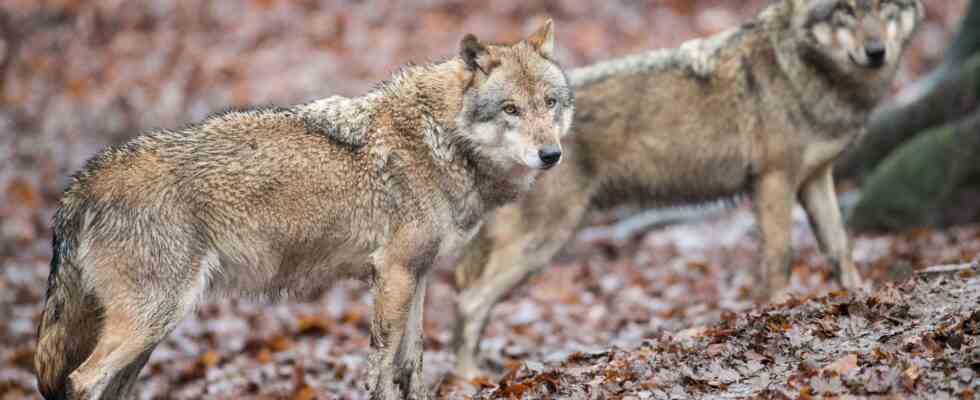Status: 11/28/2022 11:09 am
The number of wolf packs in Germany has increased slightly. With 161 proven packs, this is three more than the year before. At the same time, there are more attacks on livestock. This again causes kill requests.
The number of wolf packs in Germany has increased slightly. As reported by the Federal Agency for Nature Conservation and the Federal Documentation and Advice Center on the subject of wolves in Bonn, 161 packs of wolves were registered in Germany in the so-called monitoring year 2021/2022. That was three packs more than in the previous reporting period. The number of sighted lone wolves remained almost constant at 21.
Attacks on farm animals increase
“This is natural growth and a slightly lower increase than in previous years,” said the head of the department of zoological species protection at the BfN, Sandra Balzer. The numbers are based on surveys by the federal states with scientifically proven evidence, for example through gene traces and camera trap images, as BfN President Sabine Riewenherm emphasized.
Attacks on farm animals, especially sheep and goats, repeatedly cause public discussions about the wolf, which is strictly protected against shooting. In 2021, a total of 975 wolf attacks were reported with 3374 livestock injured, missing or killed. In the previous year there were 942 attacks.
Most wolves in Brandenburg
A total of 1175 animals have been safely confirmed in the wolf territories. However, the actual total number can deviate from this because the individual animals are not primarily recorded and the pack sizes vary greatly. During the observation period between May 2021 and April 2022, most wolf packs lived in Brandenburg (47), followed by Lower Saxony (34) and Saxony (31). The period coincides with a biological wolf year from the birth of the pups to the end of the first year of life.
A total of 148 wolves were found dead during the study period. Of these, 102 died in traffic accidents. The cause of death was of natural origin in 18 wolves and 13 wolves were killed illegally. The cause of death of eight wolves was unclear and two wolves were deliberately killed as part of management actions. In five cases, the cause of death was still under investigation.
The question of hunting
Every year, the BfN publishes a report on the occurrence of wolves in Germany, which is based on the numbers reported by the responsible authorities in the federal states. More than 30,000 references and references were evaluated for this. The wolf, which was once eradicated in Germany, has been spreading again since the late 1990s, leading to conflicts, especially with livestock owners.
Wolves are a strictly protected species under nature protection in Germany. Shooting is prohibited unless the wolves, who are actually shy of humans, behave aggressively when they encounter humans. Then the Federal Nature Conservation Act allows a shooting – officially called “extraction”. Such a case of unprovoked aggressive wolf behavior has not occurred since 1998, according to the report. There has long been a political dispute over whether predator protection should be weakened and hunting made easier.

